Mood refers to the distinction between the indicative, the imperative
advertisement
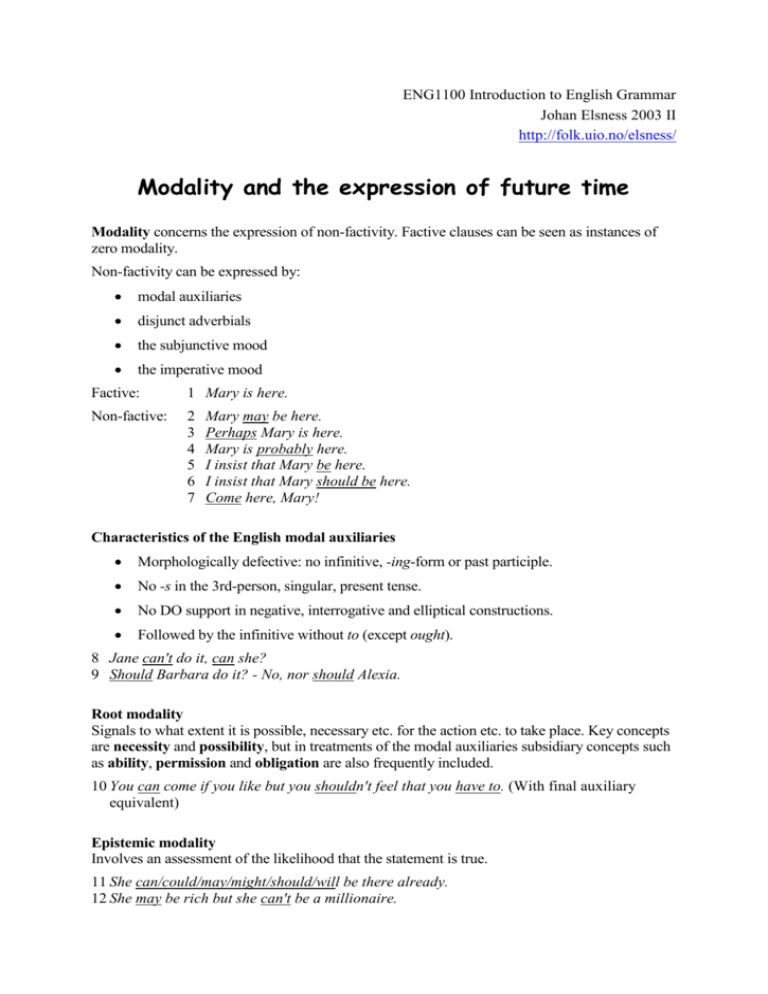
ENG1100 Introduction to English Grammar Johan Elsness 2003 II http://folk.uio.no/elsness/ Modality and the expression of future time Modality concerns the expression of non-factivity. Factive clauses can be seen as instances of zero modality. Non-factivity can be expressed by: modal auxiliaries disjunct adverbials the subjunctive mood the imperative mood Factive: 1 Mary is here. Non-factive: 2 3 4 5 6 7 Mary may be here. Perhaps Mary is here. Mary is probably here. I insist that Mary be here. I insist that Mary should be here. Come here, Mary! Characteristics of the English modal auxiliaries Morphologically defective: no infinitive, -ing-form or past participle. No -s in the 3rd-person, singular, present tense. No DO support in negative, interrogative and elliptical constructions. Followed by the infinitive without to (except ought). 8 Jane can't do it, can she? 9 Should Barbara do it? - No, nor should Alexia. Root modality Signals to what extent it is possible, necessary etc. for the action etc. to take place. Key concepts are necessity and possibility, but in treatments of the modal auxiliaries subsidiary concepts such as ability, permission and obligation are also frequently included. 10 You can come if you like but you shouldn't feel that you have to. (With final auxiliary equivalent) Epistemic modality Involves an assessment of the likelihood that the statement is true. 11 She can/could/may/might/should/will be there already. 12 She may be rich but she can't be a millionaire. Expressions of future time (i) will/shall + the simple infinitive The meaning of this construction sometimes approaches a ‘pure future’, i.e. future time not tinged with any modal meaning: 13 Tomorrow will be Friday. 14 Bernadette will be here tonight. It frequently expresses a prediction: 15 She’ll tell us it’s too late. 16 Most places will be fine tomorrow. The modal meaning of intention or volition is often implied: 17 They’ll do it first thing in the morning. 18 I’ll do it for you. Will sometimes expresses a very pronounced volitional meaning, e.g. in interrogative and conditional clauses: 19 Will you do me a favour? 20 Won’t you have a cup of tea? 21 If you’ll bring the drinks, I’ll get the pizzas. The future action may be dependent on a condition being met: 22 If Mary comes, I’ll tell her to wait. This construction is sometimes used of a spontaneous decision: 23 - This keyboard doesn’t seem to be working properly. - I’ll see if I can fix it. As regards the distinction between shall and will, shall used to be considered the norm with 1st-person subjects. However, that rule has largely been given up, although in fairly formal written English shall is still quite common with 1st-person subjects, more so in British than in American English. In a certain type of question only shall can be used in either variety. This question type usually has a 1st-person subject, and serves to ask the addressee’s opinion: 24 Shall we stop now? 25 Shall I open the window? (ii) will/shall + the progressive infinitive This often expresses the regular progressive meaning combined with future time: 26 They’ll probably be having lunch when we get there. 27 This time tomorrow we’ll be watching the baseball match. In other cases the progressive infinitive has the effect of toning down the modal meaning of the preceding auxiliary (‘the future as a matter of course’), the speaker sometimes having an ulterior motive: 28 Will you be seeing Joan today? 29 I doubt whether she’ll be coming to the party. (iii) BE + going to + the simple infinitive This construction often expresses an intention, with a human subject and with an implication of premeditation: 30 He’s going to sell his car. 31 I’m going to be very direct about it. 32 Aren’t you going to have a cup of tea? Sometimes it expresses the future result of a present cause, not necessarily with a human subject: 33 It looks as if it’s going to rain. 34 She’s going to have twins. 35 Look - that pile of boxes is going to fall! (iv) The simple present tense This verb form is used less often to refer to future time in English than in Norwegian. However, it is common in subordinate clauses of time and condition: 36 If/When he comes, tell him to wait. It is also used in other types of subordinate clause: 37 I hope he waits for me. 38 The woman he marries will need to be patient and tolerant. It is used in main clauses as the ‘timetable future’, i.e. the future seen as a given fact already, usually with adverbial specification: 39 Her train leaves at 8.30 tonight. 40 Tomorrow is Friday. (v) The present progressive With this construction the future situation is often seen as dependent on a present arrangement: 41 I can’t come with you, because I’m seeing my dentist tomorrow. 42 Are you sitting the exam this term? (vi) BE + to + the simple infinitive The future situation is commonly viewed as being beyond the control of the subject; sometimes it is an order or a command: 43 You’re to be here at eight o’clock sharp. 44 We’re to meet once a week.



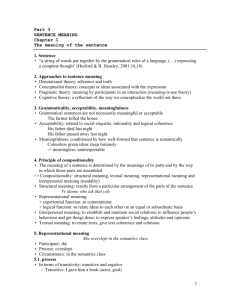

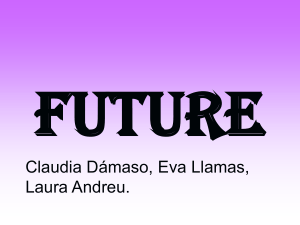
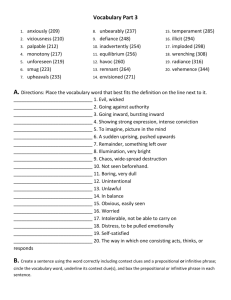
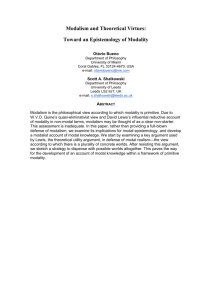
![[Your name]](http://s3.studylib.net/store/data/007889377_2-fea5a8fe62b7007a3251842889d579f4-300x300.png)